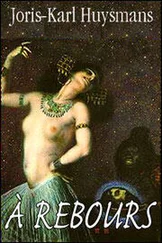Joris-Karl Huysmans - Down There (Là-Bas)
Здесь есть возможность читать онлайн «Joris-Karl Huysmans - Down There (Là-Bas)» весь текст электронной книги совершенно бесплатно (целиком полную версию без сокращений). В некоторых случаях можно слушать аудио, скачать через торрент в формате fb2 и присутствует краткое содержание. Жанр: Классическая проза, на английском языке. Описание произведения, (предисловие) а так же отзывы посетителей доступны на портале библиотеки ЛибКат.
- Название:Down There (Là-Bas)
- Автор:
- Жанр:
- Год:неизвестен
- ISBN:нет данных
- Рейтинг книги:3 / 5. Голосов: 1
-
Избранное:Добавить в избранное
- Отзывы:
-
Ваша оценка:
- 60
- 1
- 2
- 3
- 4
- 5
Down There (Là-Bas): краткое содержание, описание и аннотация
Предлагаем к чтению аннотацию, описание, краткое содержание или предисловие (зависит от того, что написал сам автор книги «Down There (Là-Bas)»). Если вы не нашли необходимую информацию о книге — напишите в комментариях, мы постараемся отыскать её.
Down There (Là-Bas) — читать онлайн бесплатно полную книгу (весь текст) целиком
Ниже представлен текст книги, разбитый по страницам. Система сохранения места последней прочитанной страницы, позволяет с удобством читать онлайн бесплатно книгу «Down There (Là-Bas)», без необходимости каждый раз заново искать на чём Вы остановились. Поставьте закладку, и сможете в любой момент перейти на страницу, на которой закончили чтение.
Интервал:
Закладка:
CHAPTER II
Nearly two years ago Durtal had ceased to associate with men of letters. They were represented in books and in the book-chat columns of magazines as forming an aristocracy which had a monopoly on intelligence. Their conversation, if one believed what one read, sparkled with effervescent and stimulating wit. Durtal had difficulty accounting to himself for the persistence of this illusion. His sad experience led him to believe that every literary man belonged to one of two classes, the thoroughly commercial or the utterly impossible.
The first consisted of writers spoiled by the public, and drained dry in consequence, but "successful." Ravenous for notice they aped the ways of the world of big business, delighted in gala dinners, gave formal evening parties, spoke of copyrights, sales, and long run plays, and made great display of wealth.
The second consisted of café loafers, "bohemians." Rolling on the benches, gorged with beer they feigned an exaggerated modesty and at the same time cried their wares, aired their genius, and abused their betters.
There was now no place where one could meet a few artists and privately, intimately, discuss ideas at ease. One was at the mercy of the café crowd or the drawing-room company. One's interlocutor was listening avidly to steal one's ideas, and behind one's back one was being vituperated. And the women were always intruding.
In this indiscriminate world there was no illuminating criticism, nothing but small talk, elegant or inelegant.
Then Durtal learned, also by experience, that one cannot associate with thieves without becoming either a thief or a dupe, and finally he broke off relations with his confrères.
He not only had no sympathy but no common topic of conversation with them. Formerly when he accepted naturalism-airtight and unsatisfactory as it was-he had been able to argue esthetics with them, but now!
"The point is," Des Hermies was always telling him, "that there is a basic difference between you and the other realists, and no patched-up alliance could possibly be of long duration. You execrate the age and they worship it. There is the whole matter. You were fated some day to get away from this Americanized art and attempt to create something less vulgar, less miserably commonplace, and infuse a little spirituality into it.
"In all your books you have fallen on our fin de siècle -our queue du siècle -tooth and nail. But, Lord! a man soon gets tired of whacking something that doesn't fight back but merely goes its own way repeating its offences. You needed to escape into another epoch and get your bearings while waiting for a congenial subject to present itself. That explains your spiritual disarray of the last few months and your immediate recovery as soon as you stumbled onto Giles de Rais."
Des Hermies had diagnosed him accurately. The day on which Durtal had plunged into the frightful and delightful latter mediæval age had been the dawn of a new existence. The flouting of his actual surroundings brought peace to Durtal's soul, and he had completely reorganized his life, mentally cloistering himself, far from the furore of contemporary letters, in the château de Tiffauges with the monster Bluebeard, with whom he lived in perfect accord, even in mischievous amity.
Thus history had for Durtal supplanted the novel, whose forced banality, conventionality, and tidy structure of plot simply griped him. Yet history, too, was only a peg for a man of talent to hang style and ideas on, for events could not fail to be coloured by the temperament and distorted by the bias of the historian.
As for the documents and sources! Well attested as they might be, they were all subject to revision, even to contradiction by others exhumed later which were no less authentic than the first and which also but waited their turn to be refuted by newer discoveries.
In the present rage for grubbing around in dusty archives writing of history served as an outlet for the pedantry of the moles who reworked their mouldy findings and were duly rewarded by the Institute with medals and diplomas.
For Durtal history was, then, the most pretentious as it was the most infantile of deceptions. Old Clio ought to be represented with a sphinx's head, mutton-chop whiskers, and one of those padded bonnets which babies wore to keep them from bashing their little brains out when they took a tumble.
Of course exactitude was impossible. Why should he dream of getting at the whole truth about the Middle Ages when nobody had been able to give a full account of the Revolution, of the Commune for that matter? The best he could do was to imagine himself in the midst of creatures of that other epoch, wearing their antique garb, thinking their thoughts, and then, having saturated himself with their spirit, to convey his illusion by means of adroitly selected details.
That is practically what Michelet did, and though the garrulous old gossip drivelled endlessly about matters of supreme unimportance and ecstasized in his mild way over trivial anecdotes which he expanded beyond all proportion, and though his sentimentality and chauvinism sometimes discredited his quite plausible conjectures, he was nevertheless the only French historian who had overcome the limitation of time and made another age live anew before our eyes.
Hysterical, garrulous, manneristic as he was, there was yet a truly epic sweep in certain passages of his History of France. The personages were raised from the oblivion into which the dry-as-dust professors had sunk them, and became live human beings. What matter, then, if Michelet was the least trustworthy of historians since he was the most personal and the most evocative?
As for the others, they simply ferreted around among the old state papers, clipped them, and, following M. Taine's example, arranged, ticketed, and mounted their sensational gleanings in logical sequence, rejecting, of course, everything that did not advance the case they were trying to make. They denied themselves imagination and enthusiasm and claimed that they did not invent. True enough, but they did none the less distort history by the selection they employed. And how simply and summarily they disposed of things! It was discovered that such and such an event occurred in France in several communities, and straightway it was decided that the whole country lived, acted, and thought in a certain manner at a certain hour, on a certain day, in a certain year.
No less than Michelet they were doughty falsifiers, but they lacked his vision. They dealt in knickknacks, and their trivialities were as far from creating a unified impression as were the pointillistic puzzles of modern painters and the word hashes cooked up by the decadent poets.
And worst of all, thought Durtal, the biographers. The depilators! taking all the hair off a real man's chest. They wrote ponderous tomes to prove that Jan Steen was a teetotaler. Somebody had deloused Villon and shown that the Grosse Margot of the ballade was not a woman but an inn sign. Pretty soon they would be representing the poet as a priggishly honest and judicious man. One would say that in writing their monographs these historians feared to dishonour themselves by treating of artists who had tasted somewhat fully and passionately of life. Hence the expurgation of masterpieces that an artist might appear as commonplace a bourgeois as his commentator.
This rehabilitation school, today all-powerful, exasperated Durtal. In writing his study of Gilles de Rais he was not going to fall into the error of these bigoted sustainers of middle-class morality. With his ideas of history he could not claim to give an exact likeness of Bluebeard, but he was not going to concede to the public taste for mediocrity in well-and evil-doing by whitewashing the man.
Читать дальшеИнтервал:
Закладка:
Похожие книги на «Down There (Là-Bas)»
Представляем Вашему вниманию похожие книги на «Down There (Là-Bas)» списком для выбора. Мы отобрали схожую по названию и смыслу литературу в надежде предоставить читателям больше вариантов отыскать новые, интересные, ещё непрочитанные произведения.
Обсуждение, отзывы о книге «Down There (Là-Bas)» и просто собственные мнения читателей. Оставьте ваши комментарии, напишите, что Вы думаете о произведении, его смысле или главных героях. Укажите что конкретно понравилось, а что нет, и почему Вы так считаете.












